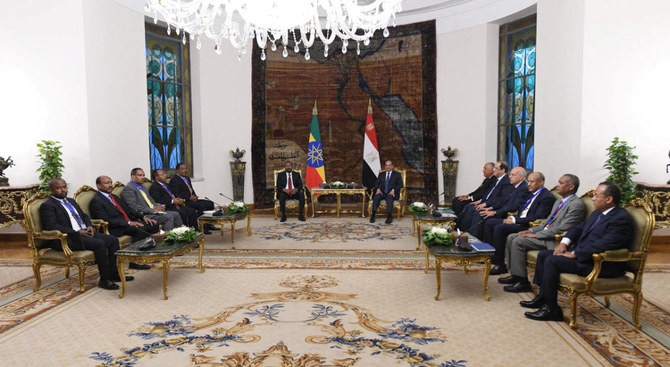The Summit of Sudan’s neighbours considered ideas and proposals to the end armed conflict in the East African country, which had been discussed previously, including at the meeting of the Intergovernmental Authority on Development (IGAD). Leaders of Sudan’s neighbouring countries also discussed mechanisms to deal with the dire humanitarian situation caused by a wave of Sudanese refugees fleeing to neighbouring countries to escape the violence.
The meeting also sought to ensure the security and stability of the entire region, towards the goal of building a common vision, as well as agreeing on effective mechanisms to resolve the Sudan crisis by peaceful means.
This is the latest regional and international effort to find a solution to the crisis in Sudan. If this crisis persists, it could threaten the stability of the Horn of Africa, the Red Sea, North Africa, the Sahel, Central Africa, the Nile and African Great Lakes region.
According to estimates by the International Organisation for Migration (IOM), since fighting broke out in Sudan nearly three months ago, more than 2.4 million people have been domestically displaced and more than 730,000 have fled abroad. Egypt to the north and Chad to the west of Sudan are the countries most affected by the influx of Sudanese refugees.
Fighting between the Sudanese army and paramilitary Rapid Support Forces (RSF) broke out in mid-April, killing nearly 3,000 people. The humanitarian situation in Sudan is now very serious as all districts in Khartoum capital have no clean water and electricity only for a few hours a week. Aid facilities are regularly looted. The fighting has left large areas of the capital Khartoum deserted, prompting a wave of attacks in Darfur. Residents have to face theft, lack of food and water, disruption of medical services, and the threat of sexual violence.
Amid the complicated and dangerous developments in Sudan, the IGAD called on the two warring parties to agree to an unconditional cease-fire with an indefinite term, as well as set up an effective enforcement and monitoring mechanism. The IGAD expressed deep concern about the impact of the current protracted fighting, saying that it had agreed to request a meeting of the East Africa Standby Forces to consider the possibility of its deployment to protect civilians and ensure humanitarian aid access to Sudan.
At the IGAD meeting, representatives of eight countries in the Horn of Africa urged the building of a peace process for Sudan. However, only the RSF sent a representative to the meeting, while the Sudanese military delegation refused to attend due to objections to Kenya’s status as the chair of the negotiations. Sudan claims that Kenya is backing the rival RSF.
After former Sudanese President Omar al-Bashir was ousted in 2019, the Sudanese military and RSF shared the control of the country with civil organisations. These two forces won full control in 2021, but then there were many conflicts over the plan on government transition towards holding general elections.
Since the outbreak of fighting between the two forces, international efforts to reconcile the two sides and end the fighting have made little progress, including peace talks hosted by Saudi Arabia and the United States in the city of Jeddah in Saudi Arabia and another meeting organised by African countries in Addis Abada in Ethiopia.
The protracted conflict has pushed Sudan into an isolated state and a humanitarian crisis, threatening the security of neighbouring countries. Finding peaceful solutions through dialogue to end the conflict in Sudan is the only way to maintain stability in East Africa.
















